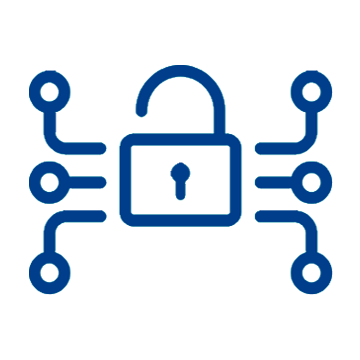What Is Multifactor Authentication?
Multifactor authentication (MFA) is a cyber-security system, which is used to verify users’ identities by requiring them to provide multiple credentials. Rather than merely asking for usernames and passwords, MFA required additional credentials. This may include a code sent to your mobile phone, facial recognition, a fingerprint, or a security question.
Any security-conscious individual that you come across will ask you what multi factor authentication’s relevance to individuals and organizations is. Well, the answer to this is quite straightforward. MFA effectively secures your personal information from cybercriminals. Traditional login credentials such as usernames and passwords can easily get breached. They have become increasingly susceptible to brute force attacks.

Multi-factor authentication creates multiple security layers, which ensures that those who are requesting access to a network, device, or account are who they claim to be. With this security tool in place, cybercriminals can steal one login credential, but it will be irrelevant since they will need multiple authentication methods to access your data.
When to Use MFA
Stopping a cyber-threat isn’t a walk in the park. Nonetheless, there are simple steps that you can take to massively mitigate the possibility of being the next victim of a hacking incident. It’s advisable to use multi-factor authentication whenever possible because threats never go away. MFA is particularly helpful if you are looking to protect sensitive data from breaches.
While some websites and networks require multifactor authentication, most offer it as an option that you can choose to enable or overlook. Even so, you should ensure that this security tool is enabled at all times. If you interact with a website that only requires you to provide your username and a password as the only login credentials, ask to be provided with MFA. This will guarantee the security of your data.
Why You Need MFA
A recent EMC and Vanson Bourne survey established that 71% of enterprise security managers understand the significance of MFA, but they are still hesitant about implementing this security measure. Unbeknown to them, MFA is easy to apply, and this can be done without increasing their cybersecurity spend. Here’s why you need multifactor authentication.Streamlined Access
Most IT systems are complex, with this being an ongoing issue that causes loopholes that can be exploited by hackers. When securing your network, a lot is involved. A minor change to the setup could require subsequent adjustments and tweaks, which might irritate users and direct them away from your site. MFA streamlines the login process, thus keeping users online at all times.
Closes the Door to Intruders
Each network needs firewalls, anti-malware software, and other similar security elements. Even with these elements in place, hackers can still breach the system if a password and username are its sole login credentials. MFA provides an extra security layer, which closes the door for intruders who may want to breach your network.
MFA is the In-thing in Cyber Security
Today’s internet users are more tech-savvy than ever before. Probably, they are already accustomed to providing multiple credentials to access a network. By introducing MFA, you won’t be burdening them by lengthening the login process. Instead, you will be telling them that you care about the safety of your data. MFA is needed everywhere, from home banking apps to email, and therefore, there’s no better time for you to join the bandwagon.
MFA Prevents Password Theft
Thanks to spyware and similar programs, it’s easier than ever before for hackers to steal your login credentials. Once planted in your network, these programs can help hackers access whatever data they want. With multi-factor authentication, hackers who rely on spyware will be kept at bay. MFA overrides techniques such as phishing, pharming, and Keylogging, which are typically used by hackers to steal passwords and other login credentials.
Authentication factors Used in MFA
When it comes to multifactor authentication, there are three main authentication factors. These are:
- Things that you know. This includes passwords and PINs
- Things that you have. This includes smartphones and badges
- Things that you are. This includes voice recognition and fingerprints
The latest multi-factor authentication solutions in the market incorporate extra factors after considering behavior and content when authenticating.
Today’s IT systems face cyber risks in all directions. This highlights the need for enterprise security managers and individual users to implement top-notch security measures that will guarantee the safety of their data. Multi-factor authentication is one such tool. This tool not only streamlines access but also gives you peace of mind since it protects your platform and users alike. To learn how to set up a multi-factor authentication system, contact NuEduSEC’s cybersecurity professionals today.